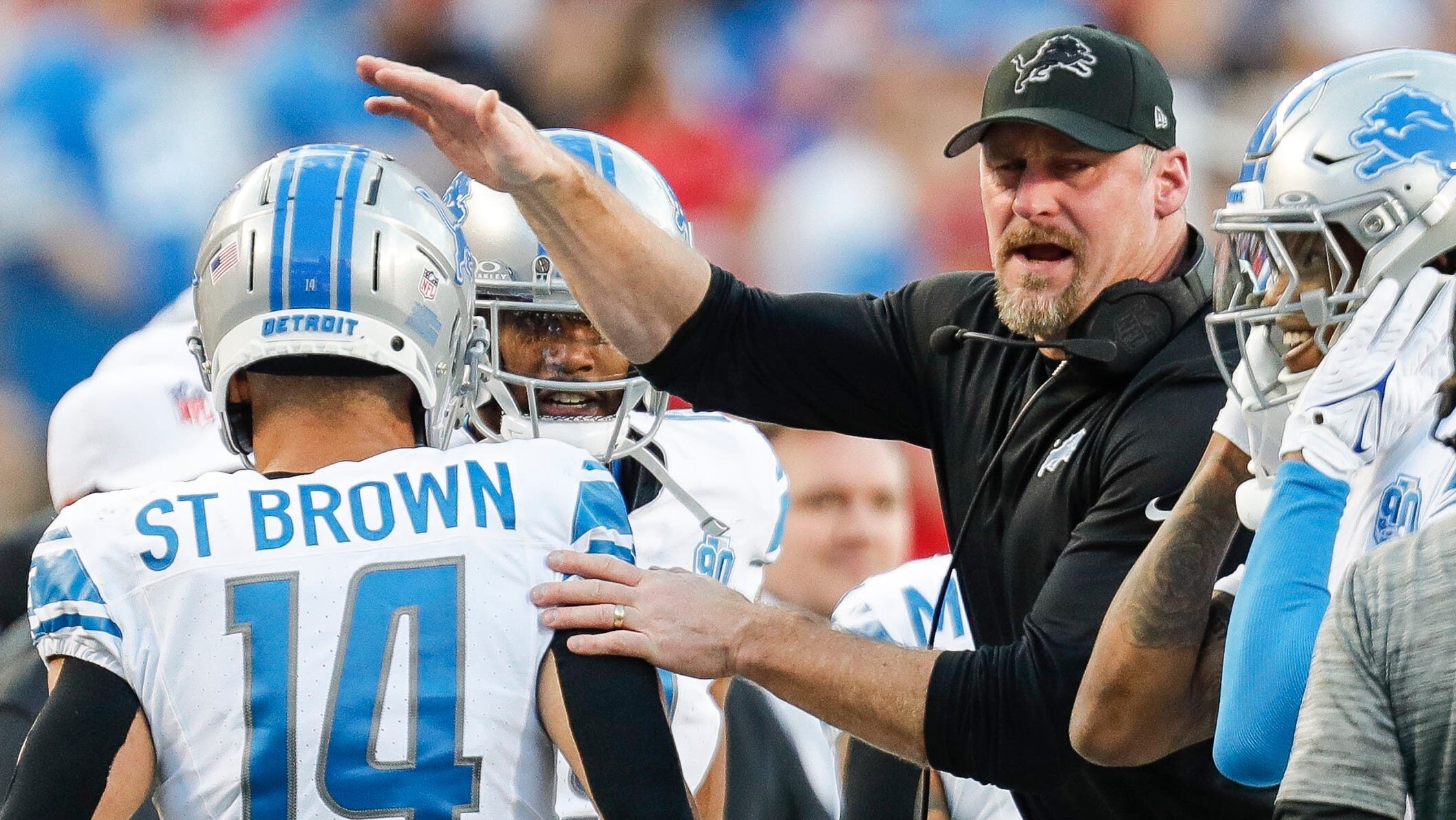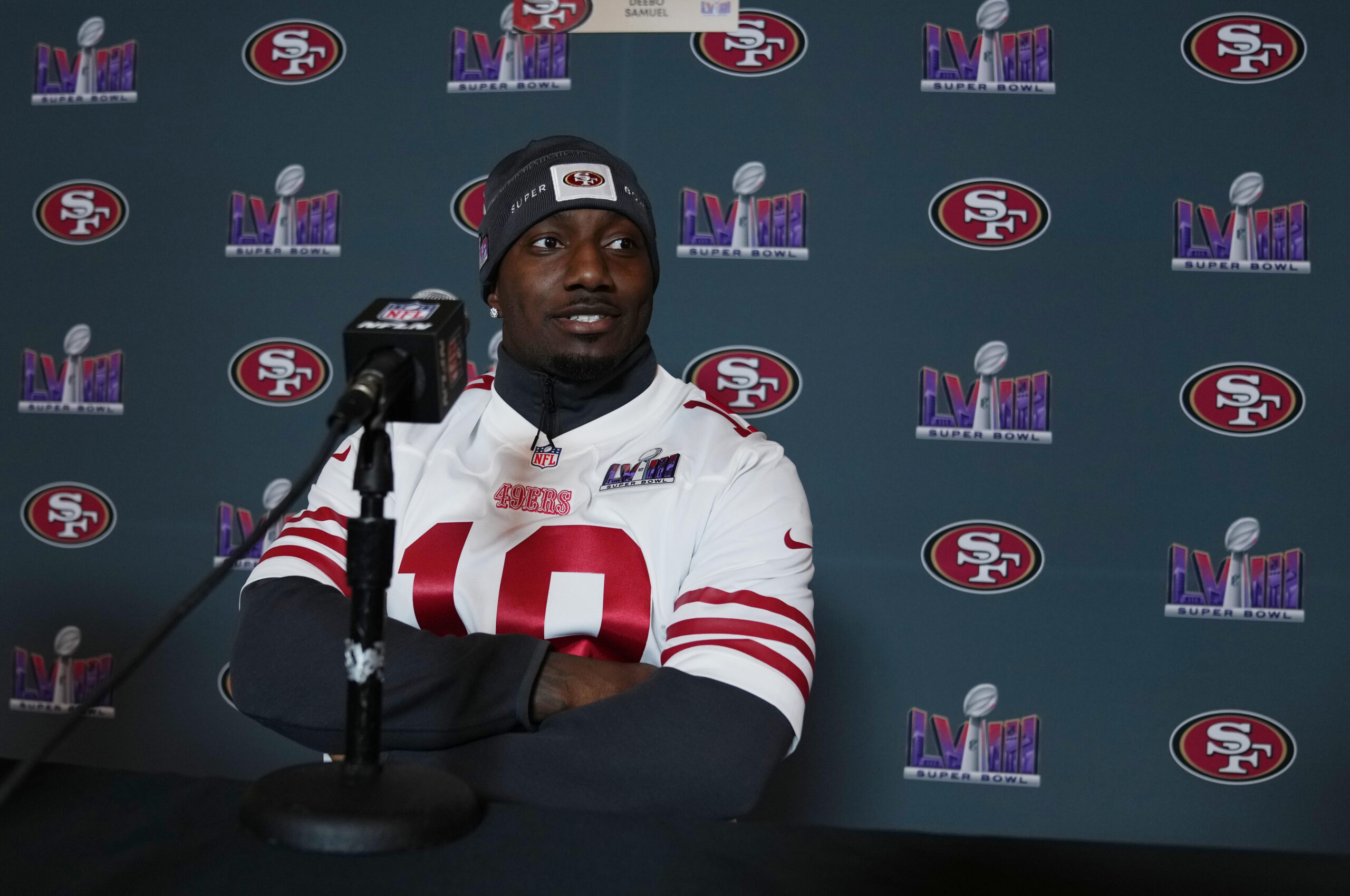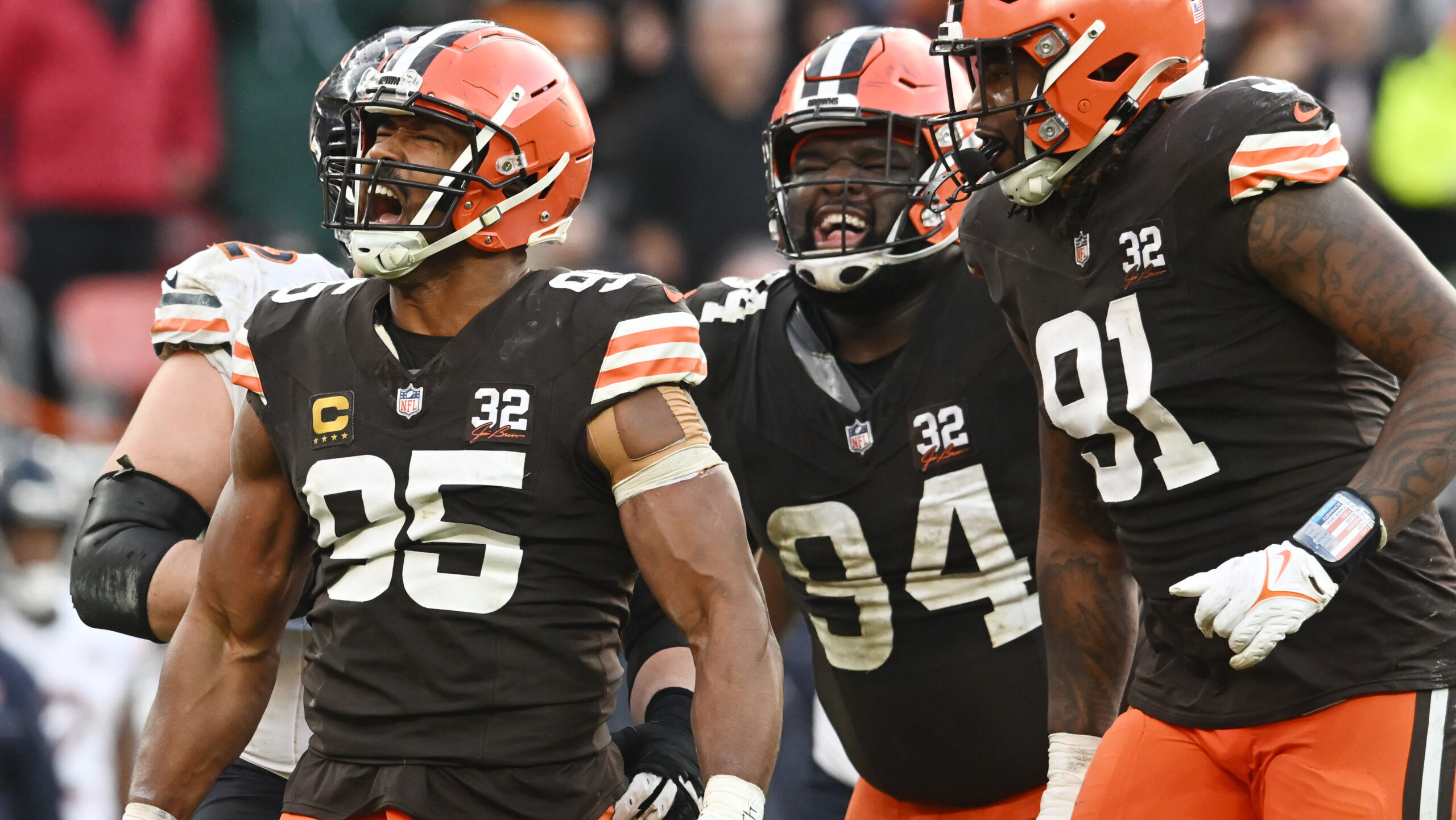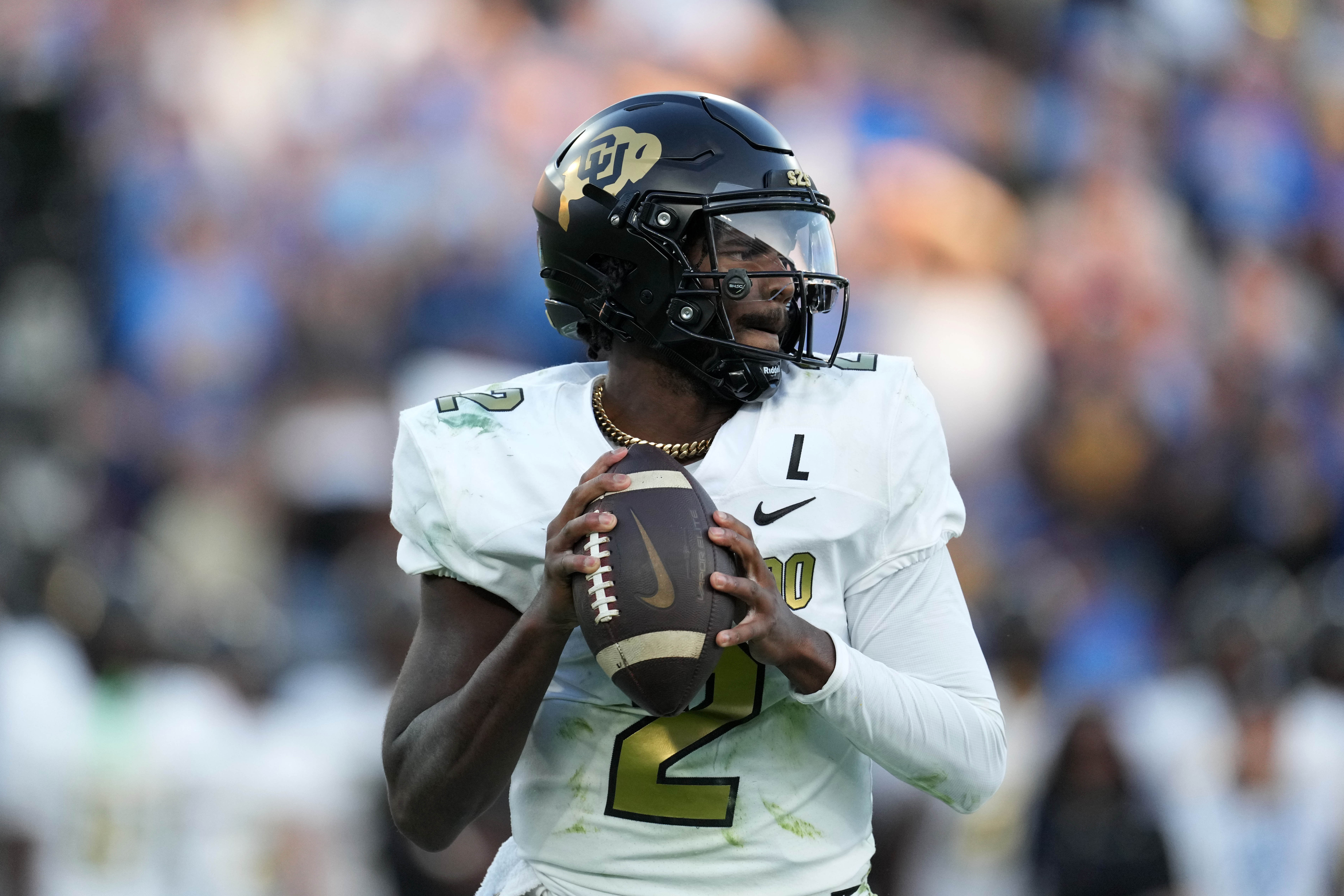NFL Analysis
2/28/24
5 min read
Fans Don't See Most Important Part of NFL Combine
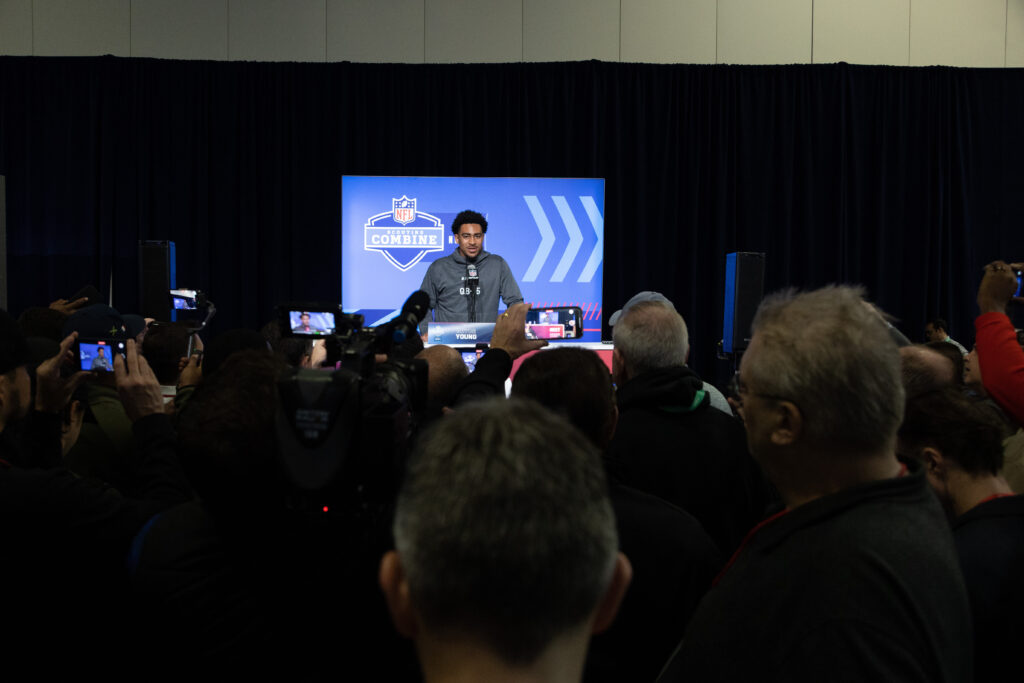
Yes, the 2024 NFL Scouting Combine that kicks off this week matters.
Unfortunately, the two things that truly matter the most (at all?) are the two aspects fans and media members don’t have access to.
Don’t get me wrong. I love seeing and hearing about the crazy measurables for some of these incredible prospects like everybody else. We all do, right? Who isn’t wowed by a 275-pound man running a 4.40-second 40-yard dash or a wide receiver who can vertical jump over 40 inches at 220 pounds? The feats of athleticism are often jaw-dropping.
>> READ MORE: Predicting Combine's Top Performers
Why Combine Is Less Valuable
They’re also becoming less and less important with every passing year. At least, that appears to be the case among most NFL teams.
There are two reasons for that.
One is that teams have mostly learned their lesson about over-drafting “Workout Warriors” who are not productive enough to garner that selection. The second is they already have a pretty good idea before the combine takes place what the prospect’s physical testing numbers will be based on information from their college careers.
More than anything, if a prospect’s numbers are far different than anticipated — positively or negatively — it could make the evaluators revisit the tape and see what they missed, but that is about it.
Teams have physical parameters they like their prospects to fall within to fit the profile they are looking for. With prospects at specific positions, teams usually know which players do and don’t fit that profile before they hit the turf in Indy.
What's Still Important?
What they don’t know as much about is the player’s injury history and mental makeup. That’s the greatest value of the combine for teams.
Sure, they have tried to get as much injury information on each prospect as possible, but colleges are guarded with that intel. This was the initial purpose behind the combine.
>> READ MORE: History of NFL Scouting Combine
Players were flying all over the country to take X-rays, MRIs and physicals for franchises that wanted to check under the hood, so to speak, before deciding whether or not to buy.
Now, they can meet with the doctors for all 32 teams and get all of the imaging done at one time, and the teams get that critical information earlier in the process. The truth is, when a player starts to “fall” and gets selected later than many anticipated, it is almost always due to his injury history. It will happen again this year — you can pretty much count on it.
At the same time, teams talk about these prospects with as many people as possible, including assistant coaches, equipment managers, administrative assistants, etc. However, it’s still not the same as talking face-to-face to see how they handle that situation.
No matter how “clean” a prospect is, there are still questions these teams want answered.
A difference maker@JalenHurts | #FlyEaglesFly pic.twitter.com/BLv7c9IbdF
— Philadelphia Eagles (@Eagles) March 3, 2023
“I’ve got a lot of confidence in our ability to see talent on the field…” said Chicago Bears general manager Ryan Poles last month. “The human being we’ve got to figure out. You’ve got to have toughness. You’ve got to have mental toughness. You need to block things out. So really, I’ve got to find out about the human beings.”
The combine represents a big part of that process. Although, truthfully, even that is disputed by some coaches these days.
Even Interviews Are Losing Steam
Los Angeles Rams coach Sean McVay, Dallas Cowboys coach Mike McCarthy, Green Bay Packers coach Matt LaFleur and New York Jets head man Robert Saleh are among the growing trend of head coaches skipping the combine.
According to longtime NFL columnist Michael Silver, there are several reasons why coaches skip the combine, including the ability to watch the workouts remotely, get more work done at their home facility, and a belief the interviews are rushed/contrived, making them less valuable, which is interesting.
Obviously, the other head coaches still value going because of those face-to-face interactions with prospects.
That makes sense. No matter what you hear about a person from others, there is still something inherently different about meeting them in person. If it is “contrived” because the prospect prepares for how to answer standard questions, it is up to the interviewer to frame the questions or the interview more naturally.
Does the player love the sport of football, or what being good at football does for him? Does he love the process of preparing each week, or does he just like playing in the games? Will getting drafted represent the finish or the starting line in his mind?
As a former player, I can tell you the true answers to those questions can and often do make a massive difference to the success or failure of a player’s career.
Unfortunately for us, unlike the teams, we won’t hear how the prospects answer those vital questions.


